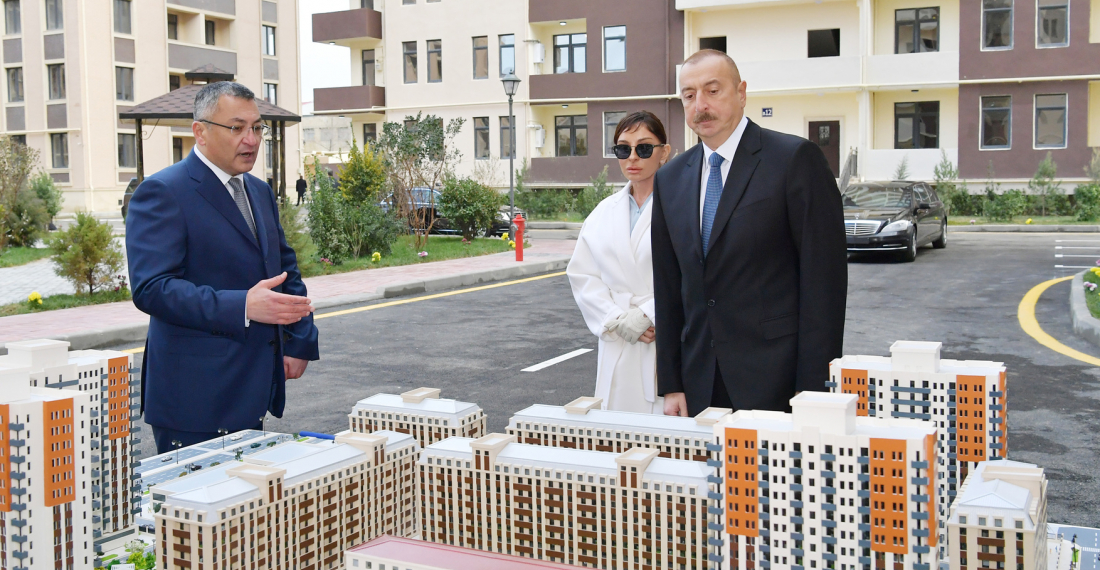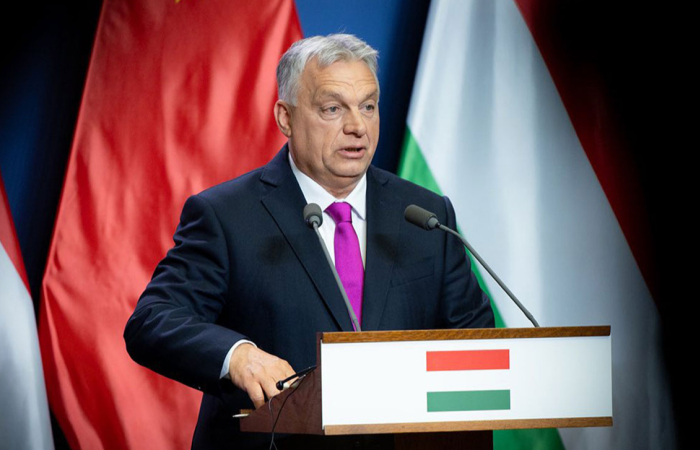Azerbaijan continues to take steps to address the problems of its large community of refugees and internally displaced persons (IDPs). On Thursday (27 December), president Ilham Aliyev inaugurated a new residential quarter in the city of Sumgait, close to the capital, Baku.
Construction on the complex which provides accommodation for 1005 refugee and IDP families started in March 2017. There are 12 buildings, including four eight-storey buildings and four 15-storey buildings in a 4-hectare complex. The quarter also includes schools, kindergartens, an activity hall, a police stations and other necessary infrastructure facilities.
According to information posted on the website of the president of Azerbaijan all apartments are fully furnished and equipped with kitchen furniture and connected to a centralised internet and television network. Of the 1005 apartments in the complex, 167 are single bedroom, 536 are two bedroom, and 302 are three bedroom and four bedroom.
The Chairman of the State Committee for Refugees and IDPs Rovshan Rzayev was on hand to show president Aliyev and his wife around the newly built complex.
Hundreds of thousands of Azerbaijanis were displaced in the 1990s as a result of the conflict in and around Nagorno-Karabakh. They initially lived in squalid conditions in Baku and other parts of the country, but the government over the last decade has spent considerable sums of money to provide the refugees and IDPs with proper accommodation. The position of the Azerbaijani government is that the accommodation it is providing is of a temporary nature, and that the ultimate aim of the refugees and IDPs is to return to the places from where they were displaced by the conflict.
source: commonspace.eu
photo: In Sumgait, Azerbaijan, the Chairman of the State Committee for Refugees and IDPs Rovshan Rzayev was on hand to show president Ilham Aliyev and his wife around a newly built complex for refugees and IDPs on 27 December 2018.







